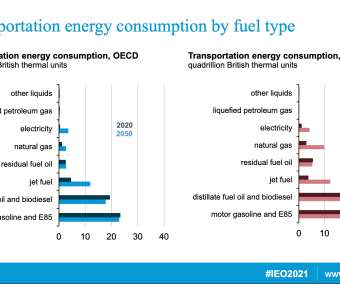EIA projects increases in global energy consumption and emissions through 2050
Green Car Congress
OCTOBER 7, 2021
In its International Energy Outlook 2021 (IEO2021), EIA projects that strong economic growth, particularly with developing economies in Asia, will drive global increases in energy consumption despite pandemic-related declines and long-term improvements in energy efficiency. —EIA Acting Administrator Stephen Nalley.
























Let's personalize your content